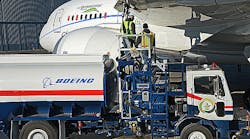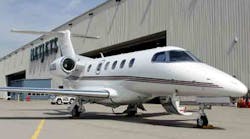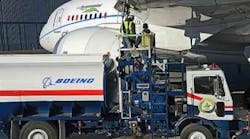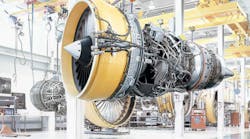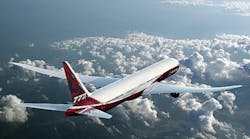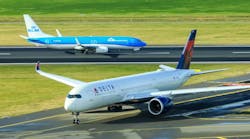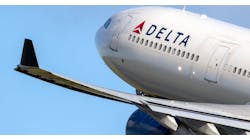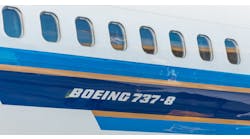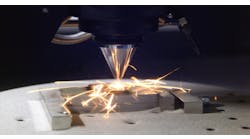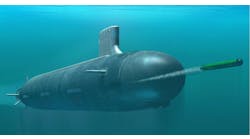Jet builders Boeing and Embraer have established a new research center in Brazil to develop jointly biofuel products for the aviation industry. At the Boeing-Embraer Joint Research Center in the São José dos Campos Technology Park, the two companies will coordinate and co-fund research with Brazilian universities and other institutions, focusing on feedstock production, techno-economic analysis, economic viability studies, and processing technologies. These areas represent “gaps in creating a sustainable aviation biofuel industry in Brazil,” according to the two companies’ statement.
Aviation biofuels reportedly produce 50-80% fewer carbon emissions over a lifecycle than fossil jet fuel. More than 1,600 passenger flights worldwide have been conducted using aviation biofuel since 2011, according to Boeing.
Last year, Boeing and Embraer signed an agreement to collaborate and co-fund biofuel research and to share intellectual property developed there. The terms and equity shares for the new joint venture were not revealed.
“Our purpose is to support work on developing and maturing the knowledge and technologies needed to establish a sustainable aviation biofuel industry in Brazil with global reach,” said Mauro Kern, executive vice president, Engineering and Technology, Embraer. “Brazil has shown its potential and is already a benchmark for the clean-energy industry, having created very successful ethanol and biodiesel industries.”
Last month, Boeing Commercial Airplanes reported it completed the first flight powered by "green diesel," a biofuel made from vegetable oils, waste cooking oil, and waste animal fats, and widely used in ground transportation. That test involved a Boeing ecoDemonstrator 787 flight test airplane, fueled with a blend of 15% green diesel and 85% petroleum jet fuel in its left engine. The flight test was coordinated with the U.S. Federal Aviation Administration and engine builders Rolls-Royce and Pratt & Whitney.
In 2011, Embraer and GE Aviation completed test flights under a broad range of conditions on the jet builder’s E-170 twin-engine aircraft, using hydro-processed esters and fatty acids (HEFA). In 2012, one of its E-195 aircraft flew tests fueled with biokerosene produced from sugar cane.
Boeing’s cooperative effort with Embraer will be managed by Boeing Research & Technology-Brazil, one of six research centers the OEM has in different regional markets around the world.
Embraer is a designer and builder of commercial, military, and executive aircraft, with headquarters nearby the new research center in São José dos Campos, in Brazil’s São Paulo state.
“Brazil, a pioneer in the sustainable fuels industry, will play a leading role in establishing the biofuels industry and helping meet aviation’s environmental goals,” according to Donna Hrinak, president, Boeing Brazil and Boeing Latin America.
The Brazilian research center follows earlier collaborative efforts by Boeing, Embraer, and Brazilian partners to develop sustainable aviation biofuel. Starting in 2012, Boeing, Embraer, the Fundação de Amparo à Pesquisa do São Paulo (FAPESP) and the State University of Campinas (UNICAMP) held a series of workshops in Brazil. In 2014, they published a roadmap (“Flightpath to Aviation Biofuels in Brazil”) that identified gaps in establishing this industry. The new research effort aims, in part, to address those gaps.
